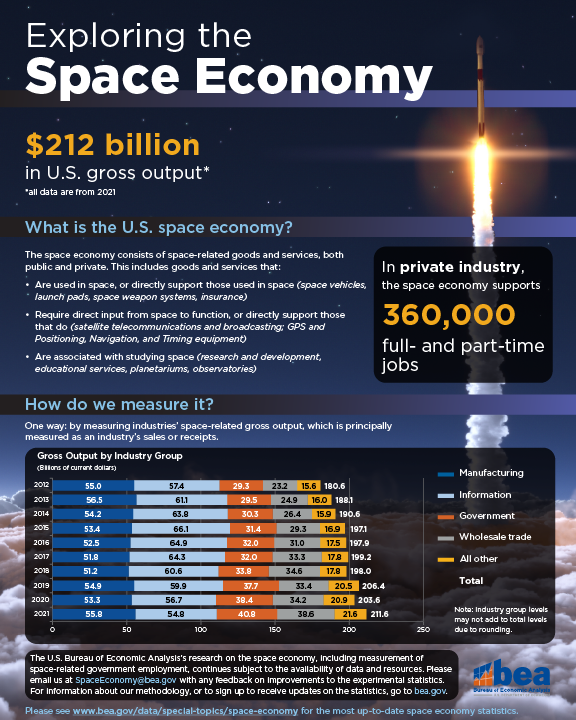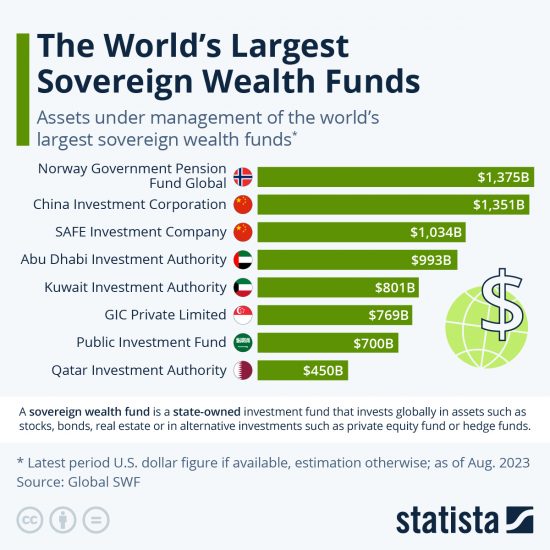A new report by the World Economic Forum (WEF) predicts a celestial boom for the global economy. Titled “Space: The $1.8 Trillion Opportunity for Global Economic Growth,” the report forecasts a staggering tripling of the space industry’s value by 2035, reaching a worth of $1.8 trillion. This growth trajectory significantly outpaces the projected rise in global gross domestic product (GDP), highlighting space exploration’s potential as a powerful economic driver.
The report attributes this anticipated surge to advancements in space-based technologies. These advancements encompass a vast array of applications, including:
-
Communication: Satellites play a central role in facilitating global communication networks, enabling everything from internet connectivity to phone calls across vast distances. The report suggests further advancements in satellite technology will enhance communication capabilities, fostering a more interconnected world.
-
Positioning, Navigation, and Timing (PNT): Global Navigation Satellite Systems (GNSS) like GPS rely on space infrastructure for precise positioning and timing services. The WEF report highlights the potential for even more sophisticated PNT applications, with benefits extending to sectors like transportation and logistics.
-
Earth Observation: Satellites provide invaluable data for monitoring Earth’s health. This data is used for tasks like weather forecasting, resource management, and disaster response. The report suggests advancements in Earth observation capabilities will allow for more comprehensive environmental monitoring and improved responses to global challenges.
Beyond these core applications, the report identifies a ripple effect impacting various industries. Sectors like supply chain and transportation, food and beverage, defense, retail, and digital communications are all poised to benefit from advancements in space technology. This widespread influence underscores the potential of space exploration to transform numerous aspects of the global economy.
The report also emphasizes the role of reduced costs and improved access to space in fueling this growth. Technological innovations are making space missions more affordable, while the emergence of private space companies is fostering a more competitive landscape. This combination is expected to further propel the growth of the space economy.
Unlocking this potential, however, requires collaborative efforts. The WEF report calls for international cooperation to establish clear regulations and frameworks for space exploration. Additionally, fostering innovation through public-private partnerships is seen as crucial for accelerating technological advancements.
By harnessing the power of space exploration, the report argues, countries can create new jobs, address pressing global challenges, and propel the global economy toward a prosperous future. As humanity sets its sights further into the cosmos, the economic benefits of space exploration appear to be just as vast and boundless.
____________________________________
This article first appeared on The WIRE and is brought to you by Hyphen Digital Network
(The content powered by our AI models is produced through sophisticated algorithms, and while we strive for accuracy, it may occasionally contain a few minor issues. We appreciate your understanding that AI-generated content is an evolving technology, and we encourage users to provide feedback if any discrepancies are identified. As this feature is currently in beta testing, your insights play a crucial role in enhancing the overall quality and reliability of our service. We thank you for your collaboration and understanding as we work towards delivering an increasingly refined and accurate user experience.)







